When K‑Pop Demon Hunters hit Netflix, the conversation centered predictably around its vibrant aesthetics, infectious soundtrack, and the delightful absurdity of a demon-slaying girl group saving the world through choreographed combat. But beneath the neon-soaked spectacle lies something far more profound—something that speaks particularly to those of us who’ve accumulated a few scars along the way.
This isn’t simply a movie about supernatural threats and catchy pop anthems. It’s an unexpectedly mature meditation on identity, shame, legacy, and the complex work of integrating the parts of ourselves we’d rather leave in the shadows. For viewers who’ve already navigated their share of personal ups and downs in life, K‑Pop Demon Hunters offers less escapism and more recognition—a mirror that reflects truths we’ve learned the hard way.
Embracing Your Shadow Self
The film’s emotional crescendo arrives when Rumi confronts an inescapable truth: she’s half-demon, literally and irrevocably. Rather than rejecting this darker inheritance, she chooses integration over denial, weaponizing what she once feared into something that protects others.
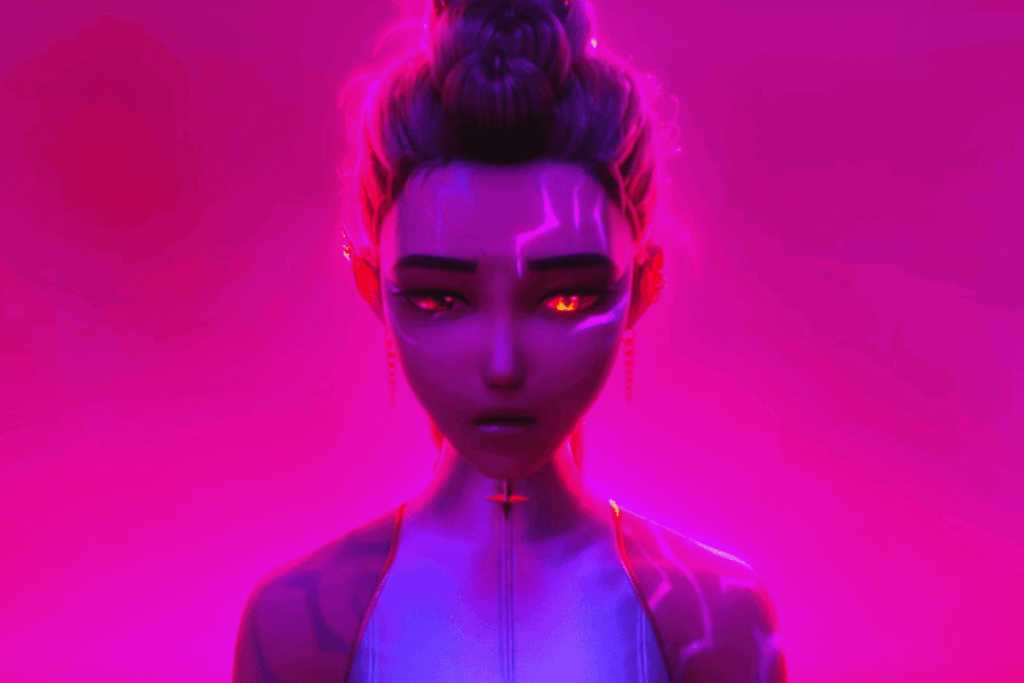
This narrative choice resonates differently when you’ve lived long enough to understand that self-acceptance isn’t about becoming someone new—it’s about making peace with who you’ve always been. Whether your personal demons manifest as anger you’ve learned to channel, grief that’s shaped your empathy, or mistakes that taught you wisdom, there comes a moment when you stop running from these aspects of yourself and start learning to work with them.
Rumi’s transformation feels authentic because it mirrors the kind of hard-won self-knowledge that typically comes with age and experience. Her strength doesn’t emerge from purification but from integration—a lesson that speaks to anyone who’s discovered that healing often means accepting rather than erasing.
The Weight of Accountability
Jinu’s arc from fallen idol to reluctant hero carries similar emotional sophistication. His path toward redemption isn’t marked by grand gestures or easy forgiveness—it’s characterized by the quiet, persistent work of trying to do better when the damage can never be fully undone.
This portrayal of accountability feels remarkably adult in its complexity. Jinu doesn’t expect absolution, nor does the film suggest that good intentions can simply overwrite harmful actions. Instead, it presents redemption as an ongoing practice rather than a destination—a perspective that will feel familiar to anyone who’s had to rebuild trust, whether in relationships or with themselves.
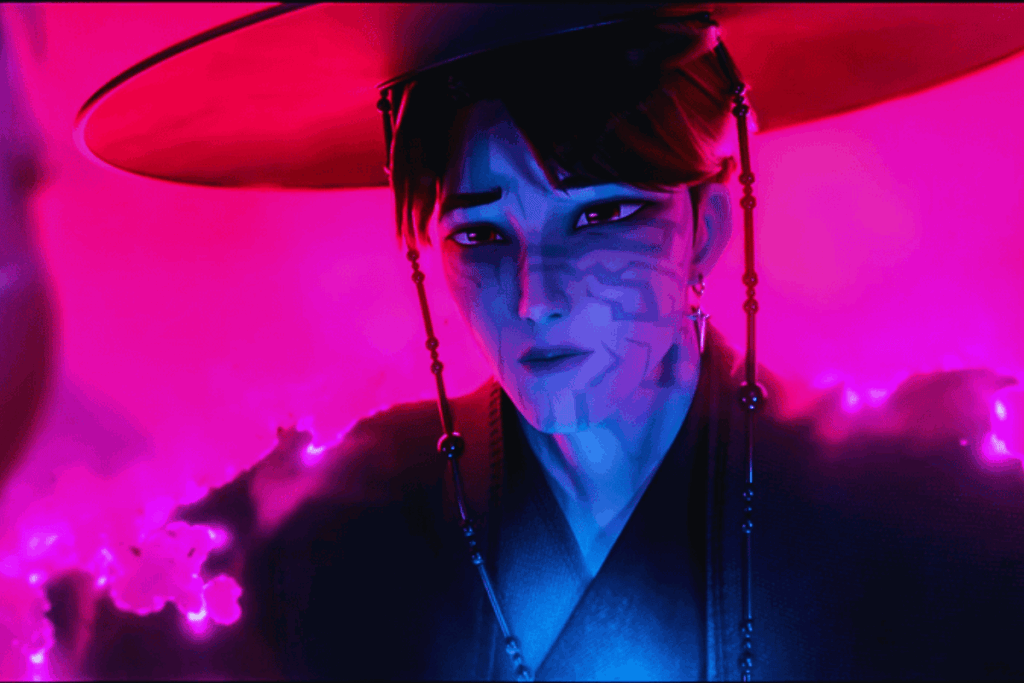
The movie understands something that many stories aimed at younger audiences miss: sometimes the most meaningful growth happens not in the aftermath of rock bottom, but in the long, unglamorous work of living differently, day after day, without fanfare or forgiveness.
When Strength Looks Like Endurance
One of K‑Pop Demon Hunters‘ most powerful moments finds Rumi at her breaking point, overwhelmed to the degree that she asks Celine to end her suffering. It’s a scene that cuts through the supernatural spectacle to reveal something painfully human: the exhaustion that can accumulate when you’ve been strong for too long.
This isn’t the dramatic collapse of a character who hasn’t learned to cope—it’s the quiet desperation of someone who’s been coping so intensely that the effort itself has become unbearable. Anyone who’s felt ground down by life’s persistent demands rather than broken by a single catastrophic event will recognize this distinction.
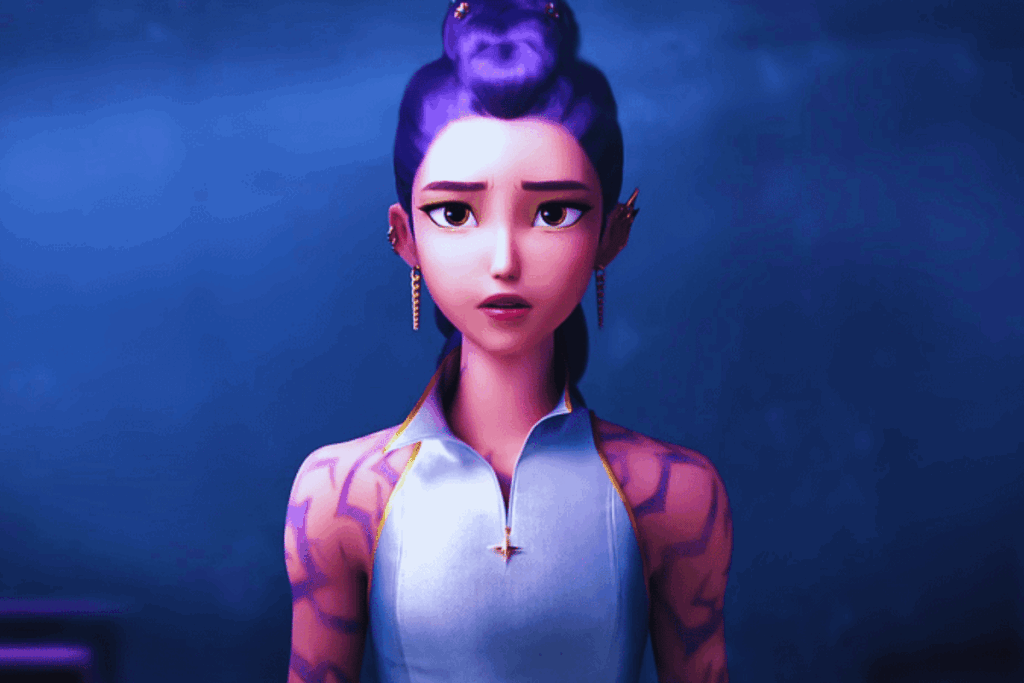
K‑Pop Demon Hunters’ response to Rumi’s crisis feels equally mature. Her recovery doesn’t come through the power of friendship alone, though connection plays a crucial role. Instead, she finds her way back through the harder work of learning to stand again—not because the weight has lifted, but because she’s discovered new ways to carry it.
Building Something That Outlasts the Spotlight
While the younger characters chase validation and navigate fame, the movie quietly explores a question that becomes more pressing with age: What are you creating that will matter after you’re gone?
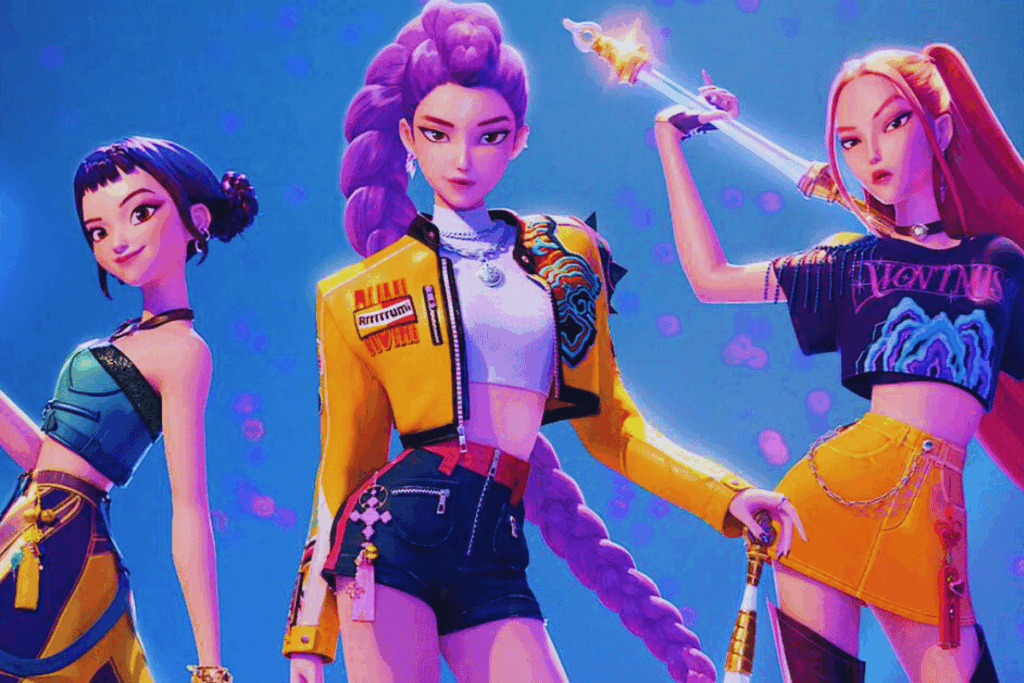
The revelation that Huntr/X serves as guardians of an ancient protective order reframes their celebrity as both disguise and platform. Their public success becomes meaningful not for its own sake, but as a means of fulfilling a larger purpose that connects them to something generational.
This theme will particularly resonate with viewers who’ve reached the point in their lives where their role has shifted from performer to mentor, from student to teacher, from recipient to contributor. The movie understands that lasting satisfaction often comes not from personal achievement but from participating in something larger than yourself.
Music as Emotional Architecture
The stark contrast between the Saja Boys’ manufactured sound and the authentic emotional expression in songs like “Golden” reflects something deeper than artistic preference—it’s about the difference between music that entertains and music that transforms.
“Golden” functions less as a pop anthem and more as a personal manifesto, a musical reckoning with identity and purpose. The song carries the weight of lived experience rather than commercial calculation, and it lands with the emotional impact that comes from genuine vulnerability.
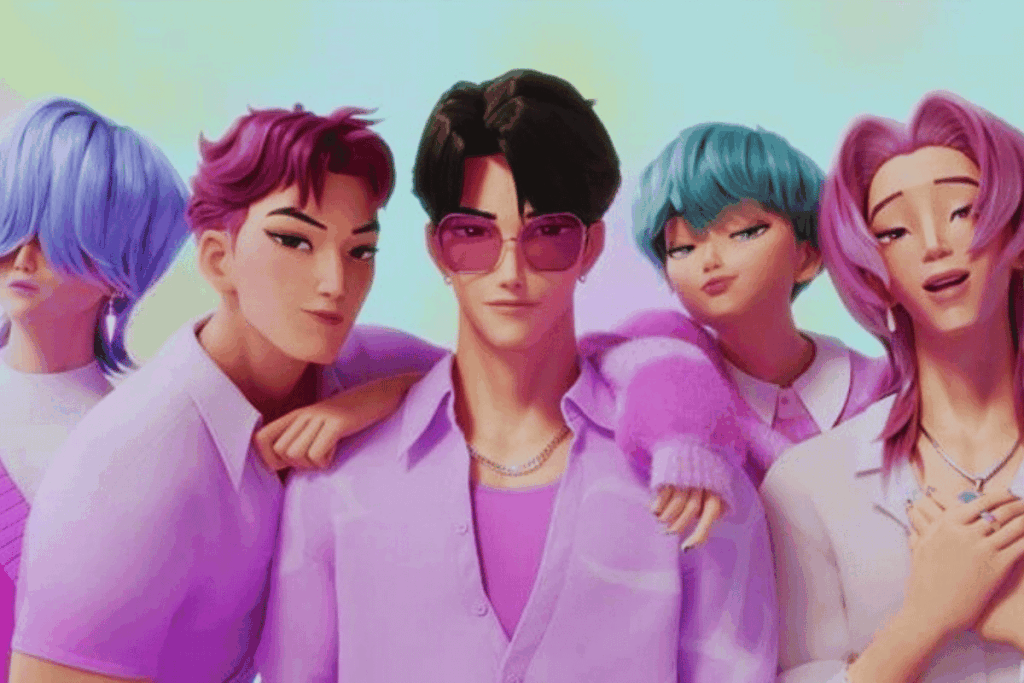
This distinction will feel particularly meaningful to viewers who’ve experienced how certain songs can become emotional landmarks—pieces of music that don’t just soundtrack difficult periods but actually help us process and integrate those experiences. The movie treats music as a form of healing rather than mere entertainment, which explains why it resonates so powerfully with audiences who’ve used art to navigate their own complex emotions.
The Courage of Visibility
Rumi’s moment of revelation—her “coming out” as half-demon—carries emotional weight that extends far beyond its supernatural context. Her fear isn’t primarily about physical danger but about rejection by the people whose acceptance matters most to her.
This scene will speak to anyone who’s ever carried shame about something fundamental to their identity, whether that’s sexuality, mental health struggles, family history, or personal failures. The movie captures both the terror and the liberation that come with allowing yourself to be fully seen, complexities and all.
The parallel to LGBTQ+ coming out experiences has been noted by several reviewers, but the emotional core of the scene transcends any single identity category. It’s about the universal fear of being known completely and the courage required to risk rejection in service of authenticity.
What Experience Teaches Us
K‑Pop Demon Hunters succeeds because it understands truths that typically come with lived experience rather than theoretical knowledge. It knows that healing isn’t linear, that forgiveness doesn’t always arrive when we’ve earned it, and that strength often manifests not as power but as persistence.
The movie presents these insights wrapped in supernatural spectacle and pop music energy, but its emotional core is surprisingly sophisticated. It speaks to the part of us that’s learned to keep going not because we’ve conquered our challenges but because we’ve learned to dance with them.
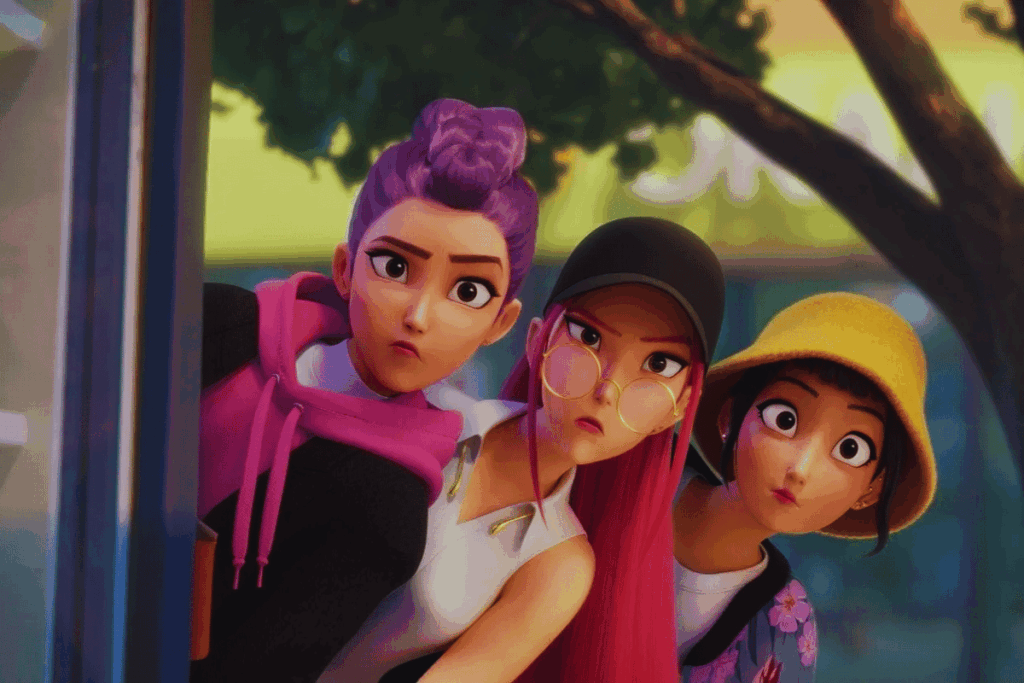
Perhaps most importantly, the K‑Pop Demon Hunters offers a different kind of hope than the typical hero’s journey. Rather than promising that we can defeat our demons, it suggests something both more realistic and more profound: we can learn to know them by name, to understand their patterns, and to channel their energy toward something meaningful.
In a media landscape often focused on transformation and triumph, K‑Pop Demon Hunters quietly celebrates integration and endurance. It’s a movie that trusts its audience to appreciate complexity, to find beauty in imperfection, and to understand that sometimes the greatest victories look less like conquest and more like acceptance.
For those of us who’ve walked through our own fires and emerged changed rather than purified, that’s a message worth hearing—and a story worth celebrating.
Read More:
The Unfair Villainization of Casual Gamers – VRSUS
Why You Should Try Playing Hobbies Competitively in 2025 – VRSUS
Shonen Anime Fans Won’t Admit It, But Power Scaling Is Ruining Their Favorite Genre – VRSUS





